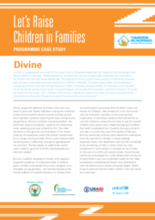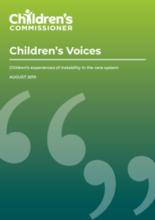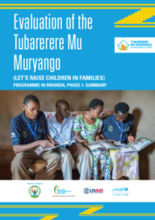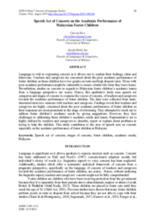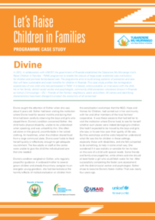Displaying 731 - 740 of 2223
This article explores how the type of placement in children's social care influences identity formation and contact with the birth family. It draws on 40 life history interviews with Romanian-born, care experienced young people who entered adulthood from different types of placement: 16 from residential care, eight from foster care, seven from domestic adoption and nine from intercountry adoption.
The current study examines past adverse experiences and current functioning of adolescent males in out-of-home care, relying on data from the Assessment and Action Record—second Canadian version for a representative sample of 508 12- to 17-year-olds in out-of-home care across the province of Ontario (Canada).
The purpose of this short paper is to contribute evidence regarding the situation of children without parental care and suitability of alternative care.
In this case study, the authors address a critical component of health care delivery for a vulnerable population by describing a process of developing an information sharing system between health care and child welfare organizations in collaboration with child protection community partners in the US.
This case study profiles the reintegration experiences of one child who has participated in the Tubarerere Mu Muryango (Let’s Raise Children in Families - TMM) programme in Rwanda.
‘Children’s Voices: Children’s experiences of instability in the care system’ is published alongside the Children’s Commissioner’s third annual Stability Index and features interviews with 22 children in England who are in care or care leavers.
The purpose of this study was to describe the role of Public Health Nurses (PHN) addressing the needs of children and adolescents in foster care.
In collaboration with UNICEF, the government of Rwanda has established the Tubarerere Mu Muryango (TMM - Let’s Raise Children in Families) programme to ensure that all children living in institutional care in Rwanda are reunited with their families or placed in suitable forms of family-based alternative care. This report presents a summary of the findings of an evaluation of Phase 1 of this programme.
This qualitative study uses speech act categories and stages of concern to examine the voices of concern, of teachers and caregivers towards the academic performance of foster children in Malaysia.
This case study profiles the reintegration experiences of one child who has participated in the Tubarerere Mu Muryango (Let’s Raise Children in Families - TMM) programme in Rwanda.


